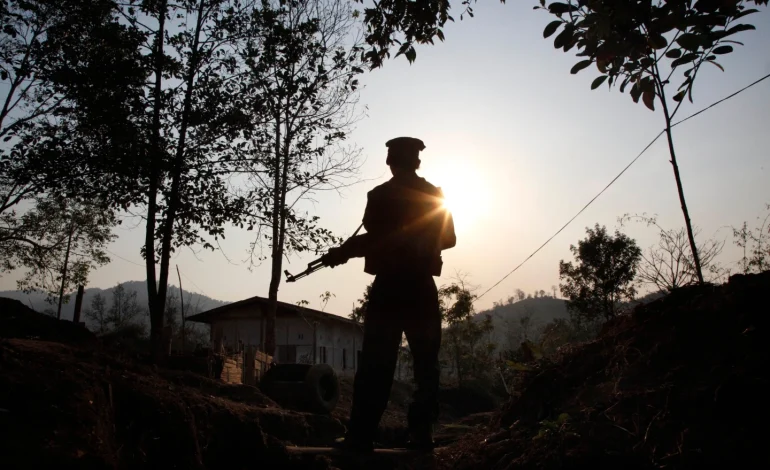A powerful rebel group, the Kachin Independence Army (KIA), has seized control of Kanpaiti, a key trading town in northeastern Myanmar bordering China, The Associated Press reports, citing multiple witnesses and local media reports.
This victory marks another major setback for Myanmar’s military-led government, depriving them of a crucial source of revenue from rare earth mining operations.
Kanpaiti serves as a hub for rare earth mineral extraction, supplying China with materials vital for manufacturing electric motors, wind turbines, high-tech weapons, and various electronics. The town’s fall leaves the military controlling only one border crossing town, Muse.
While neither the KIA spokesperson, Col. Naw Bu, nor the military spokesperson, Thet Swe, responded to requests for comment, several local news outlets reported the capture occurred last week. Independent verification of social media videos purportedly showing KIA forces raising their flag at the China-Myanmar border tunnel and displaying captured weaponry is currently pending. The ongoing civil war and restrictive military measures significantly hamper journalistic access to the region, but witness accounts corroborate the reports.
The Myanmar military seized power in a coup in February 2021, igniting intensified conflict with various ethnic armed organizations (EAOs) fighting for greater autonomy. Over the past year, the Tatmadaw (Myanmar’s armed forces) has suffered a series of defeats, particularly in eastern regions bordering China and in Rakhine State, following a coordinated offensive launched by three major EAOs on October 27, 2023. The KIA, operating in Kachin State, joined this offensive in September, escalating its attacks against the New Democratic Army-Kachin (NDA-K), a government-allied militia controlling the region’s unlicensed rare earth mines.
These unregulated mines, numbering over 300, generated an estimated $1.4 billion in rare earth exports to China last year, according to a May report by Global Witness, which highlighted the environmental and social costs of these operations. While the exact distribution of profits between the military government and the NDA-K remains unclear, the loss of revenue from Kanpaiti represents a significant blow to the military. However, Morgan Michaels, a Myanmar conflict analyst at the International Institute of Strategic Studies, cautions that while impactful, the fall of Kanpaiti may not be a decisive turning point in the overall conflict.
Despite China’s attempts to broker ceasefires, including a January agreement in northern Shan State which subsequently collapsed, hostilities continue. China has also urged the KIA to halt fighting, which has disrupted cross-border trade, but these efforts have yielded limited success. Following the capture of Kanpaiti, KIA forces have reportedly called for the return of hundreds of displaced residents.








